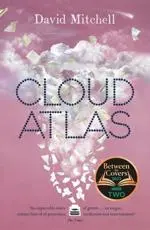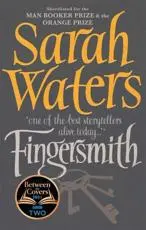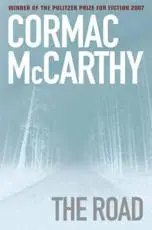Philip Hoare was born and brought up in Southampton, where he still lives. His book Leviathan, or The Whale won the 2009 Samuel Johnson Prize for Non-Fiction.
My favourite books of the decade are:
|
 |
Austerlitz by W.G. Sebald
A book that could be read backwards into the past or to a future unfolding even as its author was lost to literature. Beyond fiction, it marked the highpoint of a writer whose art, even now, extends in ways he could not have thought possible.
Buy the book
|
 |
Sperm whales: Social Evolution in the Ocean by Hal Whitehead
A scientific study which reaches deep into the imagination. Sperm whales possess the largest brains of any animal; Whitehead's hypotheses on how they might use their intelligence are truly breathtaking - to extent that they may even have their own religion. A defining text of the future.
Buy the book
|
 |
Perfect Tense by Michael Bracewell
An exquisite novella that summed up all the anxieties of the 90s and prefigured those to come. Written as one day in the life of an office absconder, Bracewell references Eliot and Waugh via Bartleby the Scrivener - and Croydon.
Buy the book
| Back to top
|
|
|
Tom Holland was born in 1968. He was brought up in the village of Broadchalke, outside Salisbury in Wiltshire, England. He studied at Cambridge and Oxford universities. He currently lives in London with his wife, two daughters, and two cats.
My favourite books of the decade are:
I seem to have read so much more non-fiction than fiction over the past decade that I am slightly startled to realize that two of the three books which had the greatest impact on me were novels.
|
 |
Cloud Atlas by David Mitchell
Cloud Atlas is actually only my second favourite work by David Mitchell - but since my favourite, Ghostwritten, was published in 1999, I will have to settle for it. Funny, unsettling and compulsively readable.
Buy the book
|
 |
Fingersmith by Sarah Waters
[Cloud Atlas] showed the same mastery of genre and plot that Fingersmith, Sarah Waters' brilliant re-working of Wilkie Collins, also displayed.
Buy the book
|
 |
The Mind in the Cave by David Lewis-Williams
The theme of my third choice, David Lewis-Williams' The Mind in the Cave, is suggested by its subtitle: 'Consciousness and the Origins of Art'. In a decade that was deluged by books on the relationship between science and religion, this investigation into the Cro-Magnon cave painting was the one that really stood out for me. Like Fingersmith, it provided all the twists of a classic detective story.
Buy the book |
Back to top
|
|
|
Norman Housley is professor of history and Head of the School of Historical Studies, University of Leicester. He is a world authority on the Middle Ages and on the Crusades in particular. He lives in Leicester, UK.
My favourite books of the decade are:
|
 |
The Road by Cormac McCarthy
No 1 has to be Cormac McCarthy's lean masterpiece The Road, soon to appear as a film starring Viggo Mortensen. It's gripping, harrowing, but also very moving in its portrayal of the father-son relationship which lies at the heart of the novel. The Road is one of those books that stay with you long after you finish reading them.
Buy the book
|
 |
The Corrections by Jonathan Franzen
Totally different is Jonathan Franzen's sprawling epic, The Corrections, his rollercoaster ride through The Way We Live Now, which more than any other novel pointed the way to the economic crash that has all but overwhelmed us. Luxuriant, brilliant and scintillating, Franzen's novel is a strong contender in the Great American Novel stakes.
Buy the book
|
 |
The RSC Shakespeare edited by Jonathan Bate and Eric Rasmussen
The RSC Shakespeare has rightly been acclaimed as the best single volume collection of all the plays. Single volume inevitably means unwieldy, and this is not bedtime reading, but the presentation of the texts is all you could ask for, the essays that preface each play are unfailingly insightful, and the introductory essay on Shakespeare's career and stagecraft is revelatory.
Buy the book
| Back to top
<<< Back
Next >>>
|
|
|



















